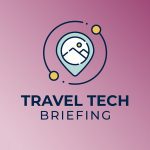Skift Take
Consumer tech is important — but so are modern internal systems. A healthy mix is key.

Travel Tech Briefing
Editor’s Note: Exclusive reporting on technology’s impact on the travel industry, delivered every Thursday. The briefing will guide executives as they decide if their companies should “build, buy, or partner” to stay ahead.
Airlines recently finished a wave of public meetings, during which some executives shared details about internal and consumer-facing tech investments. We’ve rounded up their comments on what they’re doing with internal tech systems, AI, biometrics, airline apps, in-flight entertainment, and more.
Air Canada
Air Canada has shared a number of tech investments, mostly consumer-facing, it has been making in recent months. Most recently, the company added a “cancel for any reason” tool in partnership with Hopper.
Michael Stewart Rousseau gave a brief overview of some of those investments in August:
“Our digital investments now extend throughout the customer experience. This includes increasing the use of technology, such as expanding our biometric facial recognition pilot program for customers to board aircraft and to welcome guests into our lounges. We also continue to integrate AI into our business, most recently in our contact centers. And we’ve begun renovating cabin interiors on our narrowbody fleet, upgrading our WiFi and in-flight entertainment offerings, and launching exclusive original programs, like Mattel and Apple TV+.”
British Airways
Sean Doyle, CEO of British Airways, shared some plans during a public call in late July.
It included migration of data centers into the cloud, expected to be complete next year, as well as redeveloping the BA.com and the British Airways app.
Regarding the British Airways app:
- “We’ve built up a team of about 200 tech developers headed up by a guy called Mark Lock. Mark has joined us from Tesco. We’re aiming to launch what I would call a minimum viable product prototype towards the end of the year and probably trial that on one of our short-haul businesses, potentially at Gatwick [Airport]. But we will be looking to transform how we merchandise in retail and move to more shopping basket capabilities. We’d also like to incorporate dynamic pricing far more effectively than we do today.”
- “Also make sure that the digital experience is very similar and gives you the same booking flow and product experience, no matter what channel you book through, whether it’s through BA.com, mobile web, mobile app, or even using a contact center.
- “We also want to integrate two very important components. One would be ancillaries, so that they are available in terms of upselling. And secondly, loyalty of the currency to make sure that that’s far more easily convertible in the booking flow than it is today.”
Hawaiian Airlines
Shannon Okinaka, chief financial officer of Hawaiian Airlines, shared during a call in late July:
- “As labor and other rates increase, we’re focused on finding efficiencies throughout the company as we invest heavily in technology to modernize legacy systems. We have a distinct focus on accessing data to enhance our analytical capability.”
- “We’re also making progress on many major initiatives we’re tackling this year. We’ve achieved major milestones on two such initiatives in the second quarter: transitioning our reservation system to Amadeus’ Altea platform and in-sourcing important aspects of our Airbus A330 maintenance from a third party. Altea will provide a stronger technology foundation on which to build new revenue-generating products and digital experiences for our guests.”
Ryanair
Ryanair in 2014 started an internal innovation program called Ryanair Labs.
Edward Wilson, CEO of Ryanair, made some comments during a call in late July about progress of the program, which he said is focused on automating much of the business as it plans to add up to 300 737 MAX Jets and grow to 300 million passengers in the next decade.
“I think we’ll be heading towards a headcount of just short of 1,000 in Labs,” Wilson said.
Half of them are focused on developing ancillary revenue streams, and the other half are focused on infrastructure and cybersecurity.
“Labs are developing all sorts of support systems for pilots, cabin crew, and engineers — things like eTechLog, where you take all that paper off the aircraft, where you’ve got flight planning iPads for pilots, and devices for cabin crew where you’re communicating things that are happening during the day,” Wilson said.
Part of that focus includes avoiding a similar fiasco as Southwest late last year, which partially stemmed from outdated staff rescheduling systems.
“If you’ve got 150 [pilots and crew] trying to contact a call center, you can never have that amount of people there, so you’ve got to solve the problems before they happen,” he said.
He added that the airline plans to automate some call center operations with generative AI.
Ryanair has not responded to a query from Skift about plans for generative AI in a partnership with AWS that was announced in June.
Lufthansa
Carsten Spohr, CEO of Lufthansa, shared an overview of tech investments mostly related to consumers:
- “We continuously enhance our offerings of innovative solutions, be it additional biometric boarding gates, more efficient and faster security checks and of course, new lounges. With the Lufthansa Digital Hangar, we have accelerated our digitalization and the offer of digital services to our customers. For example, we relaunched our new Lufthansa app across the digital applications of our group. More than 1.5 million active users every week benefit from real-time information on flights, baggage, waiting times, or services like rebookings.”
- “For the last 3 months, almost 150,000 customers managed their rebooking independently, 81% of our customers by now use our digital check-in options. More than 80% of all our refunds are already fully or partially automated. In addition, we see a double-digit growth year-over-year of customers using our travel ID for an even more personalized experience.”
Delta Air Lines
Allison Ausband, chief customer experience officer of Delta Airlines, shared a couple of points in late June about improving tech for travelers:
- “The next frontier for us is personalization. We carry 200 million customers every single year, 50 million of which are unique. So the more we get to know them, what they like, what they don’t like, the better experience we can give them.”
- “As you think about elevating the experience, technology will be key for us. Digital ID, the question around frictionless travel, and particularly as you go through the airport. New biometrics around digital ID: customer doesn’t have to pull out a thing to be able to get through the TSA and ultimately get onboard the aircraft. Free WiFi — huge opportunity for us when we think about that next frontier with personalization.”
United Airlines
Brett Hart, president of United Airlines, made a quick statement about app features meant to help travelers with canceled flights:
“Recently, we announced new mobile app features that support our customers during travel disruptions. These first-of-their-kind tools will allow customers to rebook, track their bags and get meal and hotel vouchers when eligible on their personal device.”
Qantas Airways
Markus Svensson, chief customer officer of Qantas, shared plans for tech investment as the airline plans to add new aircraft.
- “Digitizing our operations and enhancing our planning system will support rapid integration of plans, minimization of inefficiency, and enhanced and faster operational decision-making. Our digital operations strategy will bring data and tools such as AI and machine learning to bear over multiple time horizons to enable sophisticated optimization of our workforce and asset deployment and rapid learning from actual performance to refine planning models and drive further continuous improvement.”
- “We’re also investing in entertainment streaming. We know this aircraft is going to fly longer, for example, to Bali. So to offer paid entertainment streaming is a key part of it. This entertainment or this streaming capability also allows us to develop new digital services like food and beverage offering.”
Have a confidential tip for Skift? Get in touch
Tags: air canada, british airways, delta air lines, hawaiian airlines, iag, lufthansa, qantas, ryanair, the prompt, Travel Tech Briefing, travel technology, united airlines

